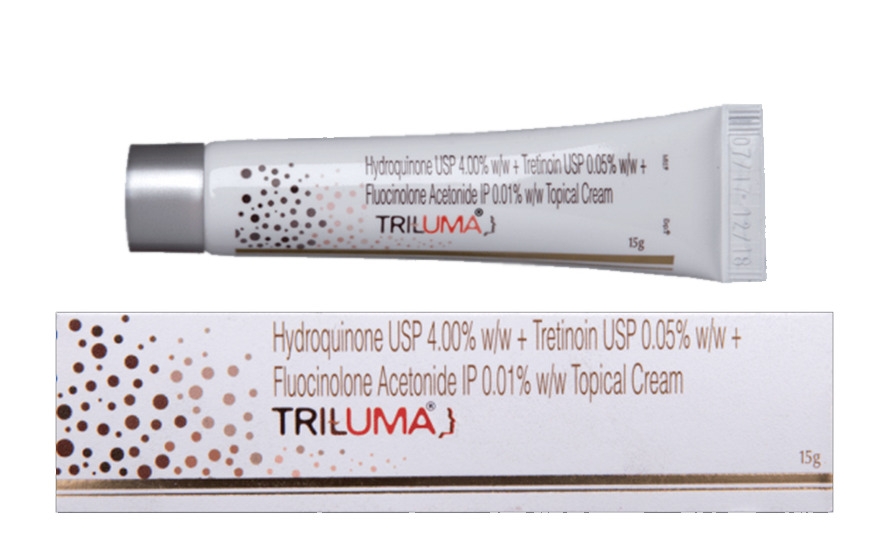Is Triluma Cream Suitable for All Skin Types?

Introduction:
Triluma Cream has gained popularity in the realm of skincare for its purported ability to address various skin issues, including hyperpigmentation, melasma, and dark spots. However, one question that often arises is whether this cream is suitable for all skin types. In this comprehensive guide, we'll delve into the details of Triluma Cream, its ingredients, and its suitability for different skin types.
Understanding Triluma Cream:
What is Triluma Cream? Triluma Cream is a topical medication that combines three active ingredients: fluocinolone acetonide (a corticosteroid), hydroquinone (a skin-lightening agent), and tretinoin (a retinoid). Each of these ingredients plays a specific role in addressing skin issues like hyperpigmentation and melasma.
How Does Triluma Cream Work?
- Fluocinolone acetonide reduces inflammation and irritation in the skin.
- Hydroquinone inhibits melanin production, thereby lightening dark spots and hyperpigmentation.
- Tretinoin enhances skin cell turnover, promoting the removal of discolored skin cells and aiding in the penetration of other active ingredients.
Is Triluma Cream Suitable for All Skin Types?
Triluma Cream and Skin Sensitivity: While Triluma Cream can be effective in treating various skin concerns, its suitability for all skin types is debatable. Individuals with sensitive skin may experience irritation, redness, or dryness when using Triluma Cream, particularly due to the presence of hydroquinone and tretinoin, which can be harsh on certain skin types.
Considerations for Different Skin Types:
- Dry Skin: Those with dry skin may find Triluma Cream too drying or irritating. It's crucial to moisturize adequately and start with a lower frequency of use to minimize discomfort.
- Oily Skin: Triluma Cream can be beneficial for oily skin types, as it helps regulate sebum production and addresses hyperpigmentation simultaneously.
- Combination Skin: Individuals with combination skin should monitor how their skin reacts to Triluma Cream. Adjustments in usage frequency may be necessary to prevent excessive dryness in certain areas.
- Sensitive Skin: People with sensitive skin should exercise caution when using Triluma Cream. Patch testing and consulting a dermatologist are advisable before incorporating it into their skincare routine.
Conclusion: Triluma Cream can be an effective solution for addressing hyperpigmentation and melasma, but its suitability for all skin types varies. While some may benefit from its use, others may experience adverse reactions, especially those with sensitive or dry skin. It's essential to understand your skin type and consult a dermatologist before incorporating Triluma Cream into your skincare regimen. Additionally, proper usage, including moisturizing and sun protection, is crucial for maximizing its benefits while minimizing potential side effects.
- Industry
- Art
- Causes
- Crafts
- Dance
- Drinks
- Film
- Fitness
- Food
- Juegos
- Gardening
- Health
- Home
- Literature
- Music
- Networking
- Other
- Party
- Religion
- Shopping
- Sports
- Theater
- Wellness
- News


